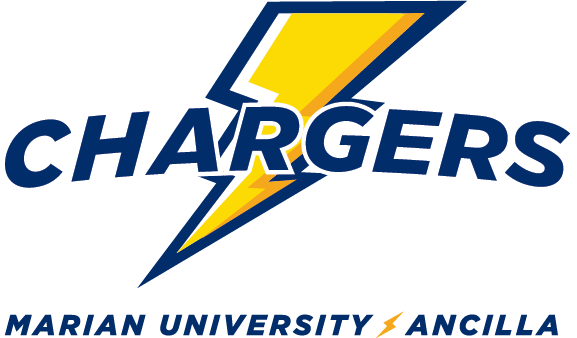Sprechen Sie Deutsch?
If you plan to work in the sciences, business, education, or healthcare, being fluent in German is a valuable credential that can enhance your career opportunities.
Our German for the professions minor will give you the language and cultural competencies you need to effectively interact with German speakers.
Why minor in German for the professions at Marian?
Wherever your career may take you, knowing German can increase your career and employment options with German- and foreign-owned companies in America and abroad.
- German is the most widely-spoken language in the European Union and one of three procedural languages used by the European Commission.
- German is the second-most widely spoken scientific language in the world.
- Besides Germany, the German language is an official language in Austria, Belgium, Liechtenstein, Luxembourg, and Switzerland.
- German is also spoken by large populations of people in Argentina, Australia, Bosnia, Brazil, Canada, Chile, the Czech Republic, Denmark, Ecuador, Greece, Hungary, Italy, Kazakhstan, Kyrgyzstan, Namibia, Paraguay, Poland, Romania, Russia, Slovakia, Ukraine, the United States, and Uruguay.
- Nearly 25 percent of Hoosiers claim German heritage, making it the largest single cultural group in Indiana. Learning German is a great way to connect with your roots.
Good bilateral relations with Germany are vital, reports the U.S. Department of State. The U.S. and German economic, political, and diplomatic relationship is key for continued prosperity and stability in both countries and around the world.
- After China and the U.S., Germany is the world’s third-largest exporter. Major German exports to the U.S. include vehicles, capital equipment and electrical machinery, pharmaceuticals, and optical and medical instruments. German investments in the U.S. focus on manufacturing, finance, and insurance.
- America’s bilateral trade with Germany totaled $238 billion in 2017, with U.S. exports of $85 billion and imports of $153 billion. More than one million jobs on both sides of the Atlantic have been created as a result of our strong partnership.
- With Europe’s largest economy, Germany is one of the most important pillars of the European Union. It is also a key leader in the North Atlantic Treaty Organization (NATO) and other international diplomatic organizations, like the G-7 and G-20.
Learning German can increase your earnings. The time you invest in studying German in college can mean a salary that’s nearly four percent higher, reported The Economist in 2014. Over the course of your career, that could mean nearly $130,000 in additional earnings.
In short, being fluent in and having a strong command of the German language distinguishes you from other job candidates, especially in competitive employment markets and industries like advanced manufacturing, engineering, science, healthcare, and business.
What makes Marian's program unique?
As a minor in German for the professions at Marian, you will:
- Become an excellent listener, speaker, reader, and writer of German.
- Learn how to use German in business and professional contexts.
- Better understand the intellectual, social, political, economic, and cultural history of German-speaking Europe and how that has led to Germany’s rise as an economic world power.
- Explore oral, literary, and cultural traditions of German-speaking countries.
- Develop cross-cultural skills and competencies.
Our expert faculty advisors help you develop a personal plan of study in which you pair a minor in German for the professions with a range of different majors based on your individual career interests and goals. For example, this minor pairs well with bachelor’s degrees like:
- Biology
- Business analytics
- Chemistry
- Clinical laboratory science
- Communication
- Engineering
- Finance
- History
- Management
- Marketing
- Mathematics
- Music
- Philosophy
- Psychology
- Sociology
- Sport performance
- Theology
We will encourage you to study abroad. Marian offers a range of short-term and semester-based study abroad programs.
- Did you know that Germany offers more scholarships for college students who want to study in that country than any other nation in the world?
- The German Academic Exchange Service (DAAD) offers paid internships in Germany for STEM majors and summer language course scholarships.
- We'll help you find opportunities and host institutions in German-speaking countries around the world. We'll also advise you about scholarships, travel grants, and financial aid that may be available for study-abroad students.
We'll also help you gain global work experience using your German language skills. Through our partner program with Salzburg College, you can study abroad in beautiful Austria and complete an internship with an Austrian firm, gaining real-world global professional experience.
What will you study?
Required and elective courses enable you to gain knowledge of the vocabulary and professional discourse relevant in professional organizations where German is spoken.
Courses are sequenced to provide comprehensive knowledge of professional practices, tools, and experiences. Through your studies, you will gain greater insight and perspective about:
- The German language and cultural competencies needed for meeting presentations, general professional and social etiquette, and business trips and conventions.
- Cross-cultural differences and similarities between Germany and the U.S.
You will complete at least 18-20 credits of courses, including:
- GER 101-102: Introduction to German I and II
- GER 200-201: Intermediate German I and II
- Six (6) credits of upper-level German electives*
*NOTE: If you test into an advanced level of German, you will take nine (9) credits of upper-level German classes instead of GER 101 and 102.
Examples of upper-level German courses from which you can choose:
GER 220: Narrative Prose in German
GER 310: Written Communication in German
GER 317: Germany’s Collective Memory in Literature, Film, and Memorials
GER 330: German Business Culture
GER 331: German for the Professions
GER 345: German Drama
GER 370: Survey of German Literature: Origins to 1800
For complete details, please review our undergraduate course catalog.
What career paths are available?
This minor will benefit you in any professional position where German language and cross-cultural skills are important. German for the professions is a good choice for:
- Engineers, scientists, mathematicians, biologists, and those who work in technology-related fields.
- Attorneys and legal specialists who work in international law, global affairs, or public policy.
- Business professionals who work in finance, accounting, and management, including marketing, advertising, social media, and communication managers.
- Educators, including English as a second language teachers
- Diplomats, foreign service officers, and professional staff at non-governmental organizations (NGOs)
- Researchers, authors, copywriters, publishers, editors, and proofreaders
- Entrepreneurs
In addition, there are paid post-graduation opportunities in Germany, Austria and Switzerland for students of German. These include:
- Fulbright English Teaching Assistantship (ETA)
- Fulbright Open Study/Research Scholarship
- Congress-Bundestag Youth Exchange for Young Professionals (CBYX)
- US Teaching Assistantships at Austrian Secondary Schools (USTA Austria)
Thinking of grad school? It is FREE at public universities in Germany, even for American and other international students. Learn more at studying-in-germany.org.

